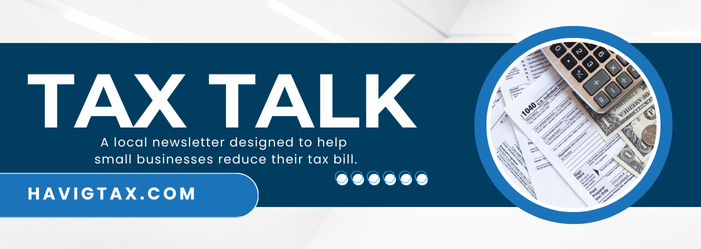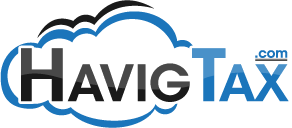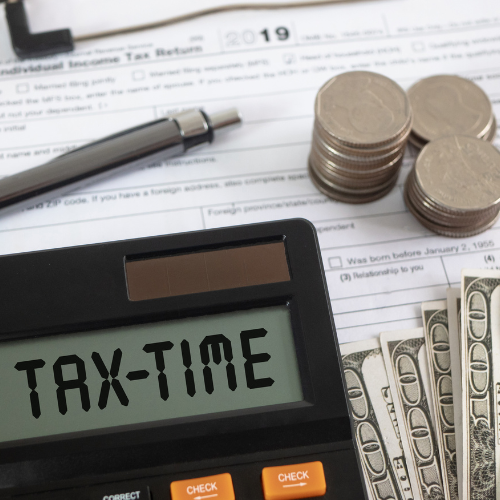February 2025 Newsletter
February 2025 Newsletter

S Corp Owner Salary: Are You Paying Yourself Enough (or Too Much)?
If you run an S Corporation, you’ve probably heard that you need to pay yourself a “reasonable salary.” But what does that even mean? And how do you make sure the IRS doesn’t come knocking?
Let’s break it down so you can stay compliant and tax-savvy.
Why Your Salary Matters
As an S Corp owner, you don’t pay self-employment tax (15.3% for Social Security and Medicare) on profits you take as distributions—just on your salary. That’s a huge tax-saving benefit! But the IRS doesn’t let you take all your earnings as distributions while skipping payroll taxes. That’s where reasonable compensation comes in.
If the IRS thinks your salary is too low, they can reclassify distributions as wages—meaning you’d owe back payroll taxes, penalties, and interest. Ouch!
So, What’s a “Reasonable” Salary?
The IRS doesn’t give a magic number, but they do look at factors like:
✔ Industry standards – What do others in your field earn for similar work?
✔ Your job duties – Are you the CEO, marketer, accountant, and janitor all in one?
✔ Company profits – If your business is making six figures, a $10,000 salary probably won’t cut it.
✔ Experience & education – The more specialized your skills, the higher the pay should be.
How to Find the Right Salary Number
Here are a few ways to determine what’s “reasonable” for you:
📌 Look at salary surveys – Websites like the Bureau of Labor Statistics (BLS), Glassdoor, or industry reports can give a ballpark figure.
📌 Use the 60/40 Rule – A common rule of thumb is paying yourself 60% salary / 40% distributions, though it depends on your industry.
📌 Ask a tax pro – If you want peace of mind, a CPA can help you set the right salary.
The Bottom Line
Setting a reasonable salary isn’t just about IRS compliance—it’s about protecting your business and optimizing your tax savings. Pay yourself fairly, keep good records, and you’ll avoid any IRS headaches down the road.
Have questions about your salary? Let’s chat! I’m always happy to help fellow small business owners keep more of their hard-earned money while staying on the IRS’s good side.
If you're looking for more information on reporting and tax preparation for your small business, feel free to reach out to our office.
Estimated Taxes: How to Avoid IRS Penalties & Keep More of Your Hard-Earned Money
If you’re running an S Corporation or any small business, you’ve probably heard about estimated taxes—but do you actually know how (or when) to pay them? Let’s break it down so you can stay penalty-free and keep more cash in your pocket!
What Are Estimated Taxes?
Unlike W-2 employees who have taxes automatically withheld from their paychecks, business owners have to set aside and pay taxes themselves throughout the year. The IRS expects you to pay these taxes quarterly, and if you don’t, they can hit you with penalties and interest.
Estimated taxes cover:
✔ Income tax on business earnings
✔ Self-employment tax (Social Security & Medicare for sole proprietors)
✔ Other taxes, like the Net Investment Income Tax (if applicable)
Do You Need to Pay Estimated Taxes?
You’re required to make quarterly estimated tax payments if you expect to owe at least $1,000 in taxes when you file. Most S Corp owners don’t pay self-employment tax on distributions, but you still need to cover income tax and payroll taxes if you take a salary.
If your S Corp has employees (including yourself), you also need to handle payroll tax deposits regularly, which is separate from estimated taxes.
When Are Estimated Taxes Due?
Estimated tax payments are due four times a year:
📅 April 15 – for income earned January-March
📅 June 15 – for income earned April-May
📅 September 15 – for income earned June-August
📅 January 15 (of the next year) – for income earned September-December
Pro tip: If the due date falls on a weekend or holiday, the deadline moves to the next business day.
How to Avoid IRS Penalties
The IRS isn’t exactly forgiving when it comes to missed or underpaid estimated taxes, so here’s how to stay out of trouble:
✅ Pay at least 90% of your current year’s tax liability – If you’re not sure what that is, your tax pro can help estimate it.
✅ Use the “Safe Harbor” Rule – Pay at least 100% of last year’s tax liability (or 110% if your AGI was over $150,000) to avoid penalties.
✅ Set Up Automatic Payments – Use the IRS Direct Pay system or EFTPS to avoid missing deadlines.
✅ Keep an Eye on Profit Fluctuations – If your income jumps mid-year, adjust your payments to avoid a surprise tax bill.
Making estimated tax payments might not be fun, but it’s better than dealing with IRS penalties (or a giant tax bill in April). Staying on top of these payments keeps your business finances in check and helps you avoid stress when tax season rolls around.
Quick Links
Contact Information
Business Hours
- Mon - Fri
- -
- Sat - Sun
- Closed















